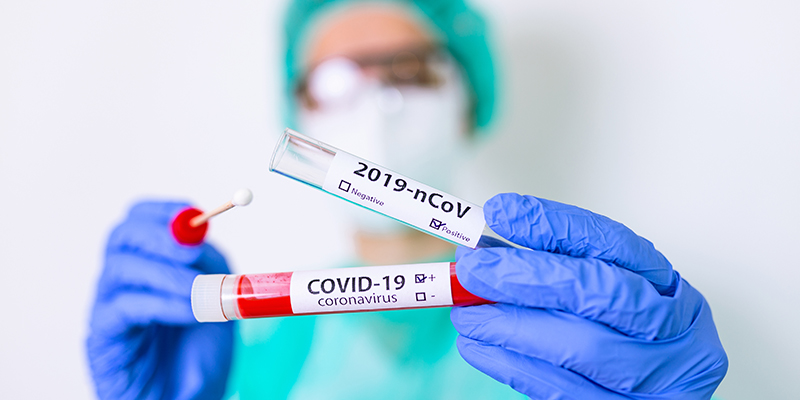Thanks to our technological advancements in diagnostics, we have made rapid progress in early diagnosis and contact tracing of the novel coronavirus. Three main tests have emerged as the gold standard in detection and treatment – the Reverse Transcription Polymerase Chain Reaction (RT-PCR), ELISA igG & Covid Antigen.
RT-PCR
Of the three, the extremely common and widely used scientific technique for over the past 20 to 30 years, the PCR, is now being used to detect the virus causing COVID-19 and is highly effective in detecting the genetic information of a virus, and has been aiding research and medicine by directly testing the presence of its RNA.
To detect the presence of the RNA, the test measures the viral RNA and converts it into DNA, makes copies of it using repeated temperature cycles in a PCR machine and uses fluorescent markers to detect the virus. If the amount of fluorescence goes above a certain level, the test confirms the presence of the virus.
RT-PCR tests are mostly preferred because they produce quick, sensitive and reliable results in close to 3-4 hours, except for when the samples have to be sent to external laboratories in which case the results may come in in about 6-8 hours.
Since the technology is widely available, research and diagnostic laboratories have started manufacturing their own RT-PCR products, tests and machinery and even gone on to experiment with “all in one” kits thereby speeding up the process and negating the risks of contamination.
COVID-19 IgG ELISA Assay
The Coronavirus COVID-19 IgG ELISA Assay Kit is a serological plate-based assay technique that detects and quantifies substances such as peptides, proteins, antibodies and hormones.
This kit is currently the most used of the serological tests, and produces results in an average time of 2–5 hours. The test typically uses a surface coated with specific viral antigen to detect the corresponding patient antibodies (IgG, IgM, IgA) in samples.
ELISA assays are available in different formats including direct, competitive, and, the most commonly used, sandwich or double-antigen-bridging assay (DABA).
COVID Antigen
Unlike an RT-PCR test that studies the genetic disposition of the novel coronavirus from nasal samples, the Antigen test detects the presence of the nucleocapsid protein which is part of the SARS-CoV-2 virus that causes the coronavirus.
The COVID Antigen test reveals if a person is currently infected with a pathogen such as the SARS-CoV-2 virus. Once the infection wears off, the antigen disappears.
Antigen tests are an important complement to PCR testing, and are crucial to expand testing capacity. The beauty of antigen testing is that it is fast and gives quick results. It will allow healthcare workers to quickly isolate cases and treat them while tracing their contacts to cut the transmission chain.
Despite the efficacies of the above mentioned tests in the diagnosis and determination of the effects of the novel coronavirus, there is no scientific evidence to prove when and for how long an individual might become immune to COVID-19. Hence, it is advisable for physicians and lab technicians to evaluate the studies from samples and arrive at well-defined testing plans in order to improve future test results.

